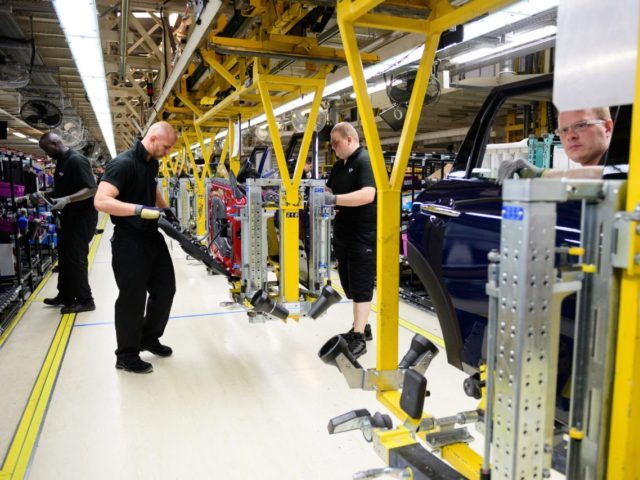LONDON – Britain’s economy picked up during a second quarter that concluded with the vote to leave the European Union, helped by the biggest upturn in industrial production since 1999, according to official data on Wednesday.
Second-quarter gross domestic product grew by 0.6 percent, up from 0.4 percent in the first three months of the year, the Office for National Statistics said. Economists polled by Reuters had expected growth to hold steady at 0.4 percent.
Output in the three months to June was 2.2 percent higher than a year earlier, the strongest annual growth in a year and compared with a forecast for it to hold steady at 2.0 percent.
But this robust pace of growth might not last into the second half of the year, given the shock to the economy resulting from the June 23 vote to leave the EU.
The improvement in economic growth in the second quarter reflected strong industrial, services and construction output in April, which largely dissipated in May and June.
That chimed with the view of the National Institute of Economic and Social Research that growth slowed markedly towards the end of the quarter.
A closely-watched business survey last week showed corporate activity contracted this month at the fastest pace since 2009, around the nadir of the global financial crisis.
A Reuters poll of economists last week suggested it was more likely than not that Britain will slide into recession in the coming year.
The Bank of England, which estimated second quarter growth would come in at around 0.5 percent, looks likely to cut interest rates for the first time since 2009 next week, although economists are divided about whether it will ramp up its quantitative easing programme.
The BoE wrong-footed investors earlier this month by keeping rates on hold, although it held out the prospect of a stimulus package.
The ONS said pick-up in growth was driven jointly by the services sector and industrial production, the latter of which expanded 2.1 percent on the quarter – its best performance since 1999.
To a large degree this reflected a surge in April, driven by the automotive industry and pharmaceuticals.
More recent data show unease across British factories since the referendum. Optimism among British manufacturers fell in July to its lowest level since early 2009, even as output rose in the last three months, a Confederation of British Industry survey showed on Monday.
While consumer confidence tumbled in the aftermath of the Brexit vote, some retailers and private sector surveys suggest consumer demand has mostly held up, helped by a strong labour market.
Separate data published on Wednesday showed service sector output slipped 0.1 percent in May from April, although was 2.7 percent higher on the year.
Reporting by Andy Bruce and Ana Nicolaci da Costa

COMMENTS
Please let us know if you're having issues with commenting.